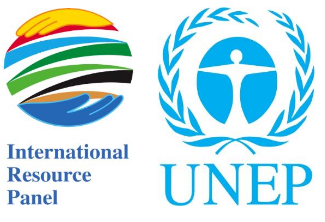The UN Environment Programme (UNEP) International Resource Panel (IRP) released a note titled 'Ten Messages on Climate Change,' emphasizing the need for a whole-system approach to reducing greenhouse gas (GHG) emissions, building on the decoupling of economic growth from resource use and degradation.
 30 November 2015: The UN Environment Programme (UNEP) International Resource Panel (IRP) has released a note, titled ‘Ten Messages on Climate Change,’ emphasizing the need for a whole-system approach to reducing greenhouse gas (GHG) emissions, building on the decoupling of economic growth from resource use and degradation.
30 November 2015: The UN Environment Programme (UNEP) International Resource Panel (IRP) has released a note, titled ‘Ten Messages on Climate Change,’ emphasizing the need for a whole-system approach to reducing greenhouse gas (GHG) emissions, building on the decoupling of economic growth from resource use and degradation.
The note presents a synthesis of several IRP reports, in the form of ten key messages for the Paris Climate Change Conference (21st session of the Conference of the Parties (COP 21) to the UNFCCC) on how sustainable resource management can contribute to climate change mitigation, with the first message stressing the importance of an overarching whole system perspective for the design and implementation of resource-related climate policies.
Other key messages address actions in different resource sectors, such as: decoupling economic growth from resource consumption and degradation; the need to simultaneously decarbonize electricity generation and enhance energy efficiency; the importance of decoupling of water consumption to save energy and reduce emissions; the need for carefully designed land-based production systems that increase productivity while minimizing emissions; the role of sustainable food systems for reducing emissions and improving peoples’ health; the need to understand environmental impacts, scarcity and recyclability of metals for the large-scale deployment of low-carbon technologies; the role of urban infrastructure design for reducing emissions and improving health; and the impact of international trade on emissions and the need for trade reform.
The final message underlines the need for more systemic changes, including a shift in societal values and increasing awareness to ensure sufficient and more equitable access to resources. It notes that technological innovation alone is unlikely to to limit temperature increase to below 2°C above pre-industrial levels. The note concludes that a systems perspective that connects resource use, production, consumption, and their impacts on the environment is required as basis of sustainable business and consumption models around the world.
The IRP was created by UNEP in 2007 to provide independent, policy-relevant scientific assessments on the use of natural resources and environmental impacts over the full life-cycle. [Publication: 10 Key Messages on Climate Change] [UNEP Press Release]